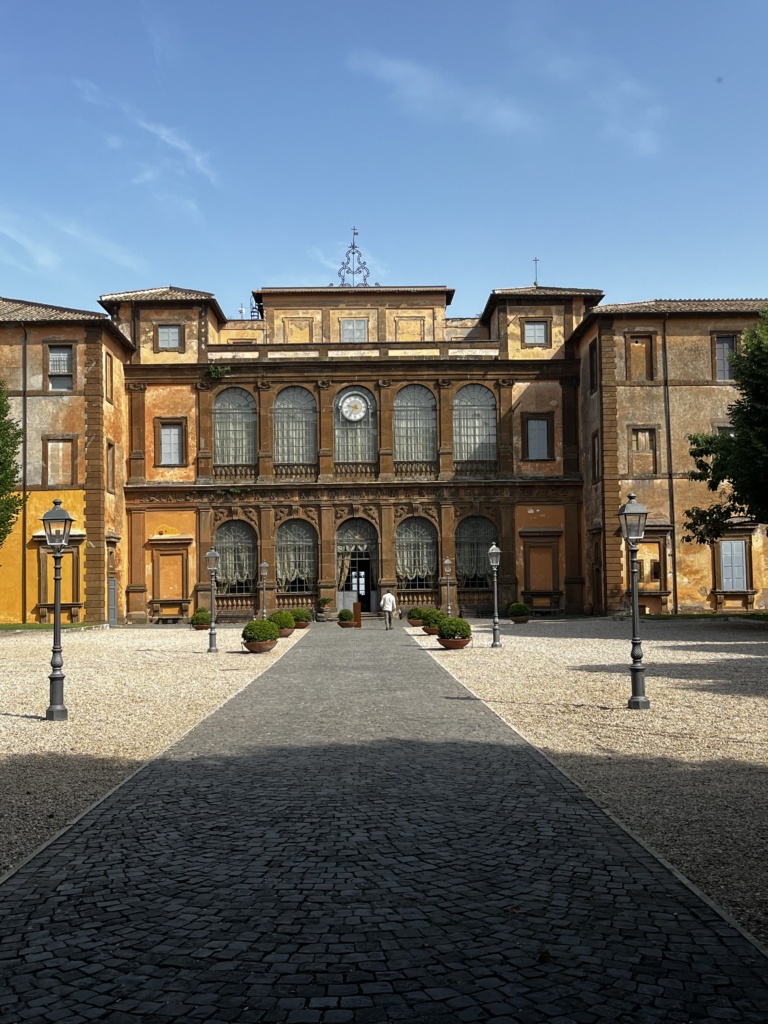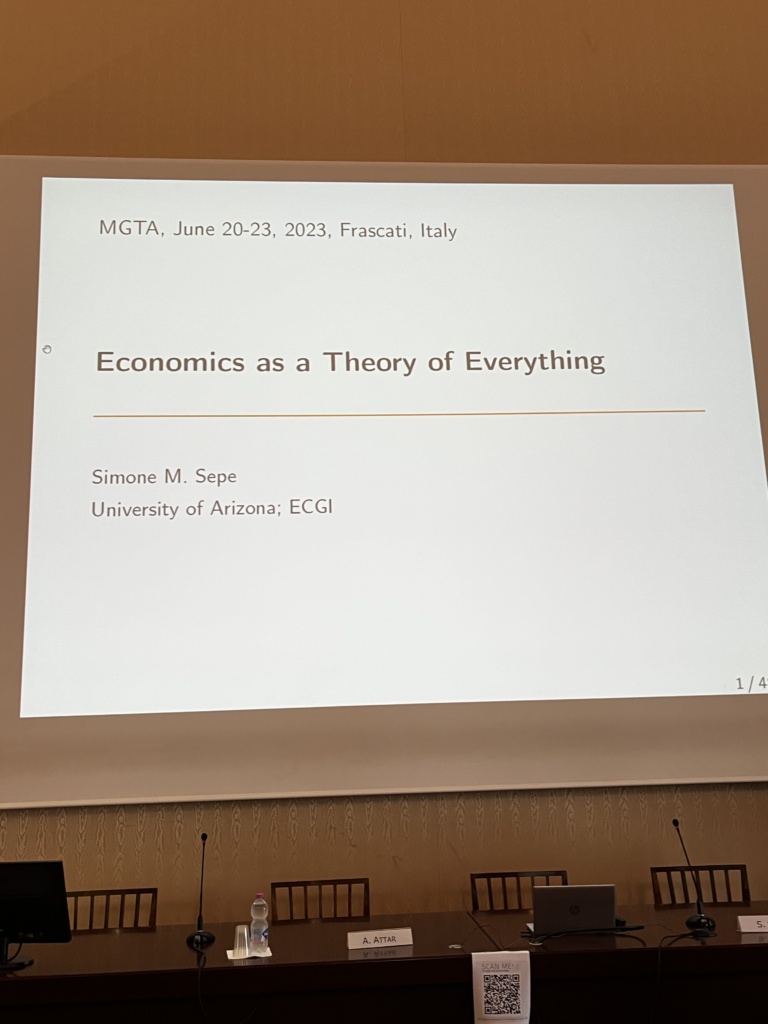Simone Sepe, UArizona James E. Rogers College of Law, Chester H. Smith Professor of Law and Finance, and Freedom Center Faculty, was among the distinguished faculty members from around the world participating in a Summer School titled, Markets and Government: A Theoretical Appraisal in Villa Mondragone, Rome from June 20-23.
The Summer School, co-hosted by the Tor Vergata University of Rome, Tor Vergata Centre for Economic and International Studies, Tor Vergata University of Rome Department of Economics and Finance, and ECONtribute: Markets & Public Policy (a joint initiative of the University of Bonn and the University of Cologne), reexamined a very classic theme in economic thought: the tension between markets and government, from the perspective of contemporary economic theory. Andrea Attar, University of Rome, Tor Vergata, Department of Economics, Associate Professor, was one of the main organizers of the summer school.
Sepe’s lecture, Normative Ethics and Economic Theory (Economics as a Theory of Everything) was part of the summer school’s four-day curriculum, which focused on general equilibrium theory, theory of incentives, public economics, and political philosophy. Other prominent scholars included Claude d’Aspremont, Catholic University of Louvain, Faculty of Economics, Social and Political Sciences; Daniel Markovits, Yale University School of Law, Guido Calabresi Professor of Law; Herakles Polemarchakis, Warwick University, Department of Economics, Professor of Economics; and Jean-Charles Rochet, University of Geneva, Geneva Finance Research Institute, Professor.
According to the summer school organizers, “Recent research on market design and incentive theory puts in question the traditional dichotomy of markets and governments. Markets can be designed in a way that serves distributive objectives, fairness objectives, or desires to avoid the use of money as a medium of exchange.
At the same time, market pressures stand in the way when governments seek to reform financial regulation, mitigate climate change, or enforce corporate taxation. These policy challenges seem to require a degree of market taming beyond the usual confines of taxation and regulation in market-based economies.
The school aims at offering a critical review of these recent issues. We will alternate traditional lectures by academics who have contributed to different areas of contemporary economic theory, with discussions around the presentation of recently published texts. In particular, the school aims to provide an opportunity to contrast contemporary economic theory with recent developments in political philosophy.”
For more information, visit https://ceistorvergata.it/MGTA.




